Shaikh Ayaz in Mumbai
The teaser of Amitabh Bachchan's upcoming film Bbuddah... Hoga Terra Baap announces that the superstar is back as an angry young man.
If the film fulfils its promise of being what it is, there's little doubt that nostalgia will be rekindled. In the 1970s and 1980s, with a spate of blockbusters, Big B emerged as the angry young man.
Will Bbuddah manage to recreate the magic? Before the trailer opens on May 20, we look at some of Amitabh's best Angry Young Man movies. Click through the slide show and vote for your favourite!
Zanjeer, 1973
The starting-point of a long and glorious journey, Zanjeer did to Bachchan what The Maltese Falcon did to Bogart.
Director Prakash Mehra went to several actors before he took a chance of a lifetime by casting Big B, who's had nothing but flops before that.
The gaffer who many considered awkward, raising suspicions over his talent, proved his detractors wrong.
Deewar, 1975
Image: A scene from DeewarWhen he's hunted down by the police, led by his own brother (Shashi Kapoor), you secretly wish he slips away. And when he lays there dying in the lap of his mother, shot by one dearest to him, you pray she forgives him.
It is because of films like these that one has faith in the movies.
Sholay, 1975
Image: A scene from SholayHe's complex, sardonic, fully capable of stripping someone of its ego but never foul-tongued.
For us, Sholay always inevitably ends when Jai dies as a result of that coin-flipping. Wish that ill-fated coin had the tails side to it.
Trishul, 1978
Image: A scene from TrishulHis meteoric rise in the construction business is frequently juxtaposed with themes of acceptance, revenge and family ties.
Decades later, we still remember those confrontation scenes between Bachchan and his on-screen father Sanjeev Kumar and can mouth that famous line from memory, 'Kuch cheezen faayde aur nuksaan ke upar hoti hai.'
Don, 1978
Image: A scene from DonOriginally made on a small scale, Don proved why only its budget was small but idea, really big.
Here, Bachchan, in a twin role, is both hero and anti-hero. As the police gets him confused with the mafia don, the innocent Vijay constantly struggles to prove who he really is.
Not the typically angry young man role, Don is significant in the development of Big B's career. That said, there is a streak of anguish in the sharp-suited man who we know as don.
Muqaddar Ka Sikandar, 1978
Image: A scene from Muqaddar Ka SikandarA story of unrequited love and friendship, Muqaddar Ka Sikandar bears all the hallmarks of a good Amitabh film.
The orphan Sikandar grows up to be in the good books of the police in sharp contrast to his role in Deewaar but in a climax that mirrors the classic, dies in the arms of not his mother, but his friend Vishal played memorably by Vinod Khanna.
Kaala Patthar, 1979
Image: A scene from Kaala PattharBut Bachchan impresses with his brooding intensity. He gives respectability to Vijay, this time an ex-Captain in the Navy who's dishonoured from the services in the wake of which he decides to live a life of obscurity.
Kaalia, 1981
Image: A scene in KaaliaForced to steal from his boss and eventually apprehended, Kaalia comes in close contact with hardened criminal and enters a life of crime. His anger is directed towards only one man: to avenge the death of his brother.
Shakti, 1982
Image: A scene from Shakti, 1982Probably inspired by co-writer Javed Akhtar's own relationship with his father, Vijay was always at odds with his dad. Yet, when his father shoots him in the end, Vijay doesn't show anger or resentment. Instead, he feels relieved.
Coolie, 1983
Image: A scene from CoolieUsing the lost and found apparatus, Desai tackles love, secularism and rich-poor divide. Throughout, that baritone remains heavy and angry.
Mard, 1985
Image: A scene from Mard, 1985Set during the times of British torture, Mard is known for its nationalistic fervour, Bachchan's towering conflict with his father played by Dara Singh and of course, the famous family reunion in the end.
In between, the angry young man drops his guard to evoke comedy and romance.
Agneepath, 1991
Image: A scene from AgneepathEvery dialogue in Agneepath has become a catchphrase, a kind of tagline that can launch a hundred film-title suffixes. When Vijay dies, yet again, in his mother's arms, you feel a lump in your throat.
Hum, 1991
Image: A scene from HumIt's as entertaining as it always was.
Vijay is reborn as Tiger here who's living a clean life because of his adopted brothers. But he has a past, a past that can send shivers down his opponent's spine.
However, those roars muffle when he's out and about shaking up on Jumma Chumma.

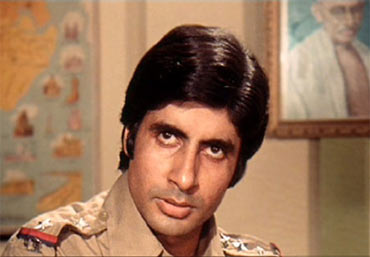
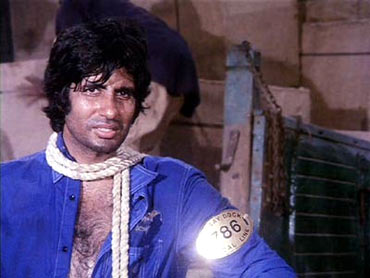
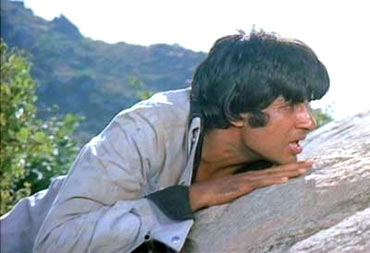
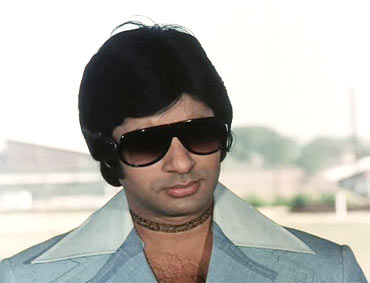
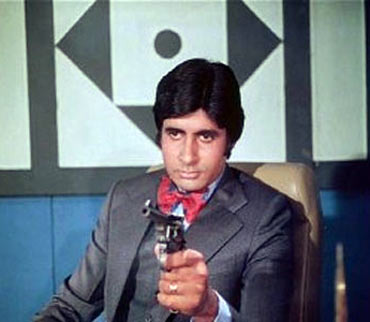
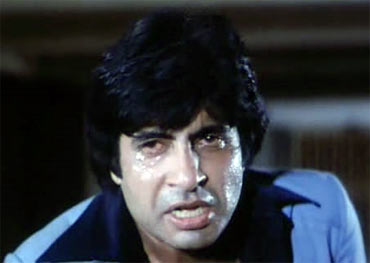
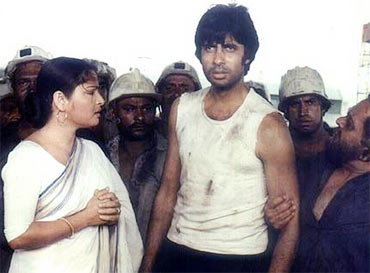
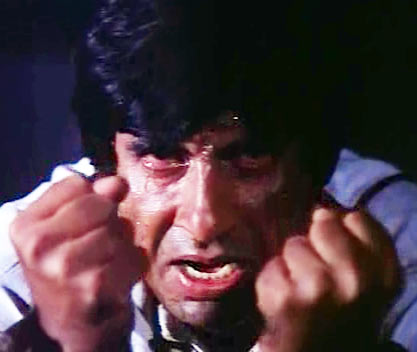
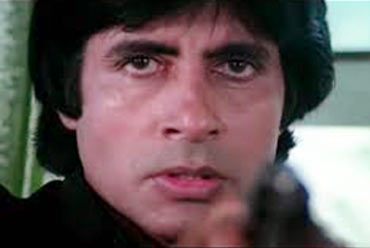
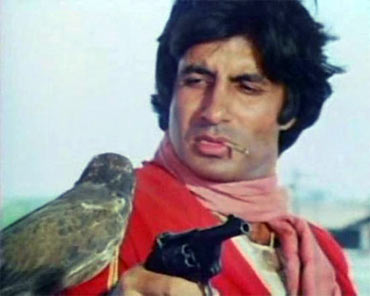
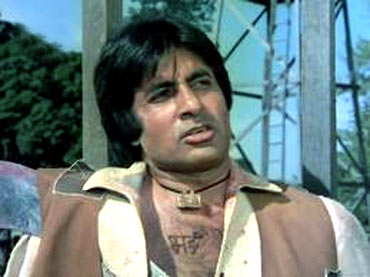
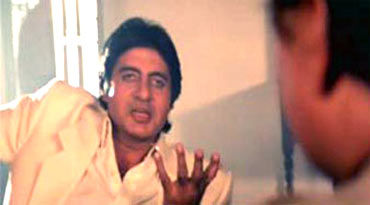
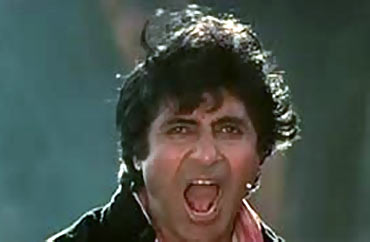
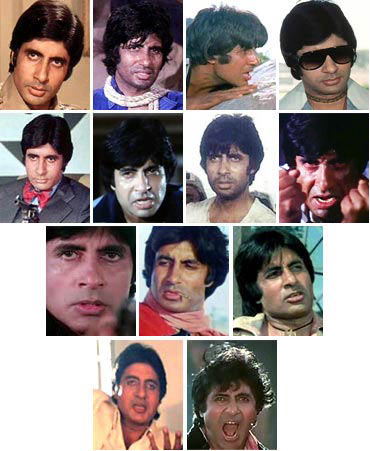
Comment
article